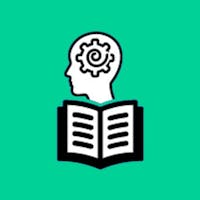
Once you're checked into the testing center, you'll be taken to an assigned computer and will be offered a whiteboard (basically a laminated sheet of paper) and pen. Take it!!! Even if you don't think you'll need it, take it anyway! You never know when it will come in handy. If you're taking practice tests, then practice with the whiteboard so you can find a good groove, and for left handers out there, it might be helpful to practice ways to use it without smudging the ink. Have helpful whiteboard tips? Share them below in the comments!
Tips for making the whiteboard work for for you:
- Make sure the dry erase marker works. If you test out the marker before the timer starts, you won't spend precious minutes raising your hand and waiting for another marker. I had to go through 2 or 3 markers before finding a working one, and as someone who used their whiteboard, I appreciated that I found a working marker before things started.
- Use it to "brain dump" the top 5-7 topics you've struggled with the most. Make sure to review the topics before entering the testing center so you can remember them long enough to get into the room and write them down. Once they're on the whiteboard, you'll free up your cognitive resources and energy to work through questions vs. trying to work through questions AND struggle to recall the normal distribution or Piaget's cognitive stages.
- Add a quote or positive affirmation to your whiteboard to help you keep your head in the game when you start to get discouraged.
- Use it as an active notepad for working through questions. Jot down notes, actively cross out answer options, or write down reasoning for why you're leaning toward an answer, in case you need to review it later. I found this to be very helpful. It helped me slow down and process the information instead of trying to hold it all in my head. By the end, I used both sides of the whiteboard and it looked like the nerdiest graffiti ever, but I passed, so I didn't care!
- Write down steps for breaking down questions, so you have a concrete "recipe" to refer to when you get lost in a question. It can help you stay grounded and with the question rather than swimming in a sea of information.


